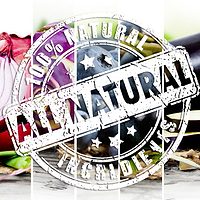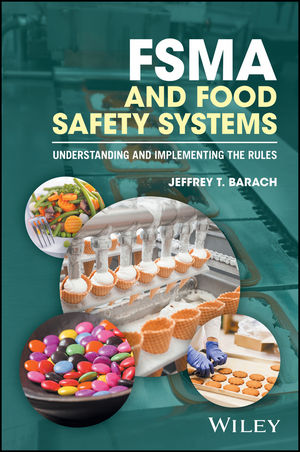The Post Foods Cases: When ‘Natural’ Means Stay

Three nearly identical class action complaints were filed recently against Post Foods on behalf of consumers, alleging that the cereal brand company’s use of the term ‘natural’ in promoting Shredded Wheat cereal constitutes false, deceptive and misleading advertising: Wu v. Post Foods (N.D.C.A. Case No. 16-cv-03494), Stephenson v. Post Foods (E.D.N.Y. Case No. 16-cv-03396) and Organic Consumers Assoc. v. Post Foods (D.C. Supr. Ct. Case No. 2016CA004551). The sole ingredient in the cereal is whole grain wheat. Plaintiffs object to the phrases “100% Natural Whole Grain Wheat” and a “Natural Source of Fiber” because the wheat crop is treated with a synthetic herbicide. According to the plaintiffs, consumers reasonably believe that a product labeled ‘natural’ contains no, and indeed has never been sprayed with any, synthetic ingredients and that the cereal advertising therefore violates California, New York and District of Columbia consumer protection laws. Of course, whether or not this is so depends in large part on how the courts, or better still the U.S. Food and Drug Administration (FDA), chooses to define ‘natural.’
Plaintiffs’ complaints discuss at length last year’s decision by the non-governmental International Agency for Research (IARC) to list the specific herbicide used on Post’s crops and many others, glyphosate, a “probable human carcinogen.” The IARC’s listing is controversial and separate litigation is pending against the California Office of Environmental Health Hazard Assessment (OEHHA) regarding OEHHA’s intent to add glyphosate to California’s “Proposition 65” list of carcinogenic chemicals (Monsanto v. Office of Environmental Health Hazard Assessment, Fresno Supr. Ct. Case No. 16-CECG-00183). While colorful, it is not clear that this side bar is relevant to the complaints, as Plaintiffs’ definition of ‘natural’ would foreclose use of any synthetic crop treatments. In light of the active role that FDA has recently adopted in defining what is and what is not natural, ‘natural’ litigation, including the Post Foods cases, should be stayed pending the agency’s final determination. To do otherwise would be for the judiciary to encroach upon an area in which FDA has notable technical expertise and invites inconsistency in outcomes and inefficiency in trying these cases.
Urged by federal courts, corporations and private citizens alike to clarify the legal definition of ‘natural’ in food labeling, FDA opened a docket on November 12, 2015, and invited public comments regarding whether it is appropriate for the agency to define the term ‘natural,’ what a suitable definition might be and how the agency should determine proper use of the term on food labels. The public comment period closed on May 10, 2016, and FDA has not yet released its determination based on the docket. In the meantime, every court, save one, hearing a ‘natural’ case has granted a stay when it has been requested pending the FDA’s determination. Courts have acknowledged a variety of theories as persuasive grounds for staying a ‘natural’ case, including the primary jurisdiction doctrine and the efficiency and consistency gained by awaiting FDA’s pending determination. The only court that refused to stay a ‘natural’ case following FDA’s November 2015 announcement did so because it found that the agency’s long-standing informal policy explicitly addressed the facts of that case, so a stay would serve no purpose.
Most persuasively to the courts, the primary jurisdiction doctrine dictates that in appropriate circumstances, courts have discretion to stay proceedings pending the resolution of an issue that is within the special competence of an administrative agency. Courts may defer to the agency’s technical expertise and experience in an effort to promote better informed legal decisions and to maintain uniform treatment of like cases. The key question considered by the courts is whether 1) there is a need to resolve an issue; 2) that has been placed by Congress within the jurisdiction of a regulatory agency; 3) pursuant to a statute that subjects an industry to comprehensive regulatory authority; and for which 4) expertise or uniformity is needed in its administration. The answer in the Post Foods cases is “yes.”
Courts across the country have stayed cases according to this logic. In the first ‘natural’ case following FDA’s announcement of the public comment period, Kane v. Chobani, LLC (9th Cir. Case No. 14-15670), the Ninth Circuit recognized the primary jurisdiction doctrine as its chief basis for staying the proceedings. The court noted that the usage of the term “implicates technical and policy questions that should be addressed in the first instance by the agency with regulatory authority over the relevant industry rather than by the judicial branch.” Moreover, the court concluded that awaiting the ongoing FDA proceedings would not needlessly delay the case, but would lend to a more efficient hearing and conserve judicial resources.
Since Kane, each of the ‘natural’ cases to consider the matter relied on the primary jurisdiction doctrine as a basis for staying the litigation pending FDA’s determination. In Mains v. Whole Foods Mkt., Inc. (N.D.C.A. Case No. 12-cv-05652), the court stayed a case in deference to FDA’s primary jurisdiction, which challenges the claim that certain natural sodas are free of artificial colors, flavors or preservatives. In Maxwell v. Unilever U.S., Inc. (N.D.C.A. Case No. 12-cv-01736), the court invoked FDA’s primary jurisdiction and stayed claims regarding ‘natural’ tea products. The courts’ deference to the primary jurisdiction doctrine rests squarely on FDA’s more appropriate position in defining the use of the term ‘natural’ on food labels.
The Post Foods cases are not the first to allege that using chemicals to treat crops and the existence of trace herbicide residues render a food not ‘natural.’ In a case that has been pending against The Hain Celestial Group for more than 5 years (In re Hain Celestial Seasonings Prods. Consumer Litig., C.D.C.A. Case No. 13-cv-01757), Plaintiffs alleged that Hain’s tea was falsely labeled “100% Natural” because the tea contained detectable amounts of herbicide residue. That case against Hain was recently stayed because of the FDA docket as were two different cases involving other foods [Anderson v. The Hain Celestial Grp., Inc., (N.D.C.A. Case No. 14-cv-03895) and Smedt v. The Hain Celestial Grp., Inc., (N.D.C.A. Case No. 12-cv-03029)].
Even the decision in Morales v. Kraft Food Grp., Inc. (C.D.C.A. Case No. 14-cv-04387) to deny a request to stay a ‘natural’ case was rooted in deference to FDA. There, the court held that FDA’s longstanding informal policy explicitly clarified ‘natural’ as it related to the facts of that case. The plaintiffs contested the defendant’s use of ‘natural’ as it referred to a product made with artificial coloring. The court agreed with the plaintiffs that a stay served no purpose because in the FDA’s announcement for public comment, it specifically reaffirmed that “all color additives regardless of source” are not ‘natural,’ a policy consistent with its treatment of the term for the past 25 years. This court’s limited reason to deny a stay is not one that applies to the Post Foods cases because FDA has no such informal policy regarding whether grains treated with herbicide are not ‘natural’ and Morales reaffirms FDA’s primary jurisdiction in this area.
The Post Foods cases are more akin to In re Gen. Mills, Inc. KIX Cereal Litig. (D.N.J. Case No. 12-249), a case involving Kix cereal, a product made with bioengineered corn and marketed as “made with all natural corn.” The plaintiffs argue that the product cannot be ‘natural’ because the underlying grain is bioengineered. The court sided with the defendant, holding that the case should be stayed under the primary jurisdiction doctrine pending developments with FDA’s docket. The court found a stay “particularly appropriate” as the case raised questions on a topic FDA specifically invited public comments to address. Since FDA has never made a specific determination about whether applying herbicide to crops yields them not ‘natural,’ the questions presented by the Post Foods cases also are particularly well-suited for the agency to address. Staying the Post Foods cases will allow FDA to make an informed, consistent decision on the matter.
Notably, many courts that have granted a stay also have reserved their discretion to lift the stay if FDA fails to act in a timely manner, or if a certain period of time transpires absent a determination by FDA. The courts presiding over the Post Foods cases enjoy the same discretion, and, thus, there is no reason to not stay the claims consistent with the primary jurisdiction doctrine pending FDA’s determination on whether to define the term ‘natural.’
One way to avoid these lawsuits is to forego using the term “natural” in product labeling until FDA releases its determination on the issue, but that could mean depriving consumers of useful truthful information. Another option is to replace the term “natural” with a longer phase that conveys the relevant information in more detail [e.g., “made with only X active ingredient(s)”], but labeling space is at a premium and may not permit this. Alternatively, companies can define and publically disclose what they mean by the term “natural.” Prominently displaying the company’s definition of the word in advertising, displays and various media puts the consuming public on notice as to what the term “natural” means with respect to the company’s products and may moot alterative idiosyncratic interpretations of the term by individual putative plaintiffs.
Amy Lally is a partner in Sidley Austin LLP’s Los Angeles office.
Yasmine Agelidis was a summer associate in Sidley Austin LLP’s Los Angeles office at the time this article was written.
This information has been prepared for informational purposes only and does not constitute legal advice. This information is not intended to create, and the receipt of it does not constitute, a lawyer-client relationship. Readers should not act upon this without seeking advice from professional advisers. The content therein does not reflect the views of the firm.
Looking for a reprint of this article?
From high-res PDFs to custom plaques, order your copy today!








